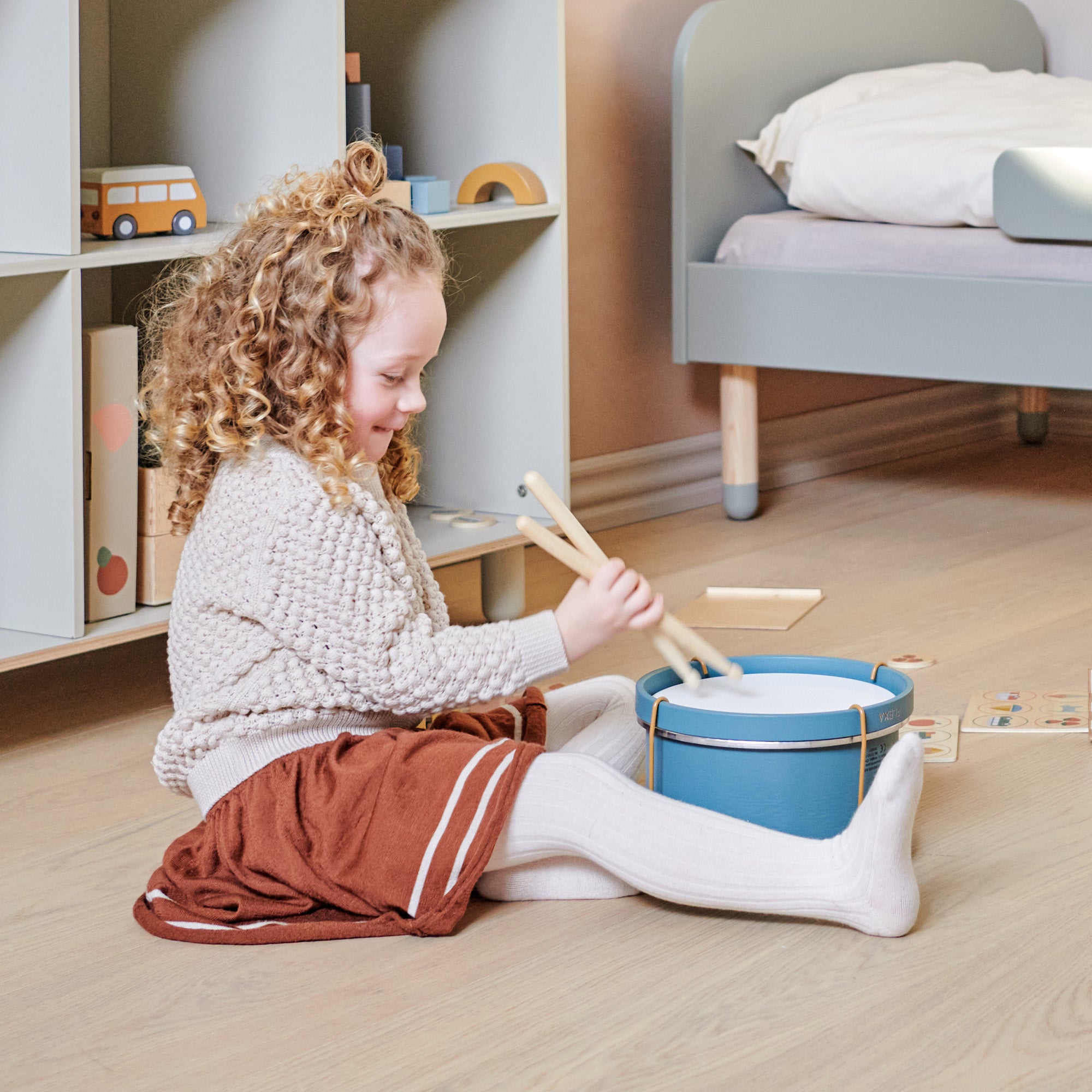You have probably heard it’s a good thing to expose your child to music. But have you heard what happens when your child is the one who gets to play the music? Letting your little one play with musical toys, like drums, maracas, flutes, or xylophones, is valuable to your child’s development on so many levels. Read on to learn why.
Highlights:
-
Musical toys help to develop your child’s body and mind.
-
Playing with musical toys helps to:
-
Teach patience and persistence.
-
Build social skills.
-
Boost imagination and creativity.
-
Support language skills.
-
Enhance gross and fine motor skills.
-
Give your child the gift of enjoying music, simply by acting as a role model and enjoying all kinds of music yourself.
Musical Toys Develop both Body & Mind
We can’t all be Mozart from day one. So, try not to focus on the false notes that are coming out of your child’s Flute and instead enjoy all the great things your little one will pick up from playing a musical instrument. Musical toys help to:
1.Teach your child patience and persistence.
Learning to master a musical instrument takes a great deal of patience – and persistence too (especially if things don’t go quite the way you planned). Plus, it gives your child a sense of accomplishment when, one day, all the hard work pays off.
2.Build your child’s social skills.
Danish expert in children’s development, Joern Martin Steenhold, has found that children build emotional bonds and social skills when they play music together. Being part of a musical ensemble simply teaches your child to show respect and consideration for others.
3. Boost your child’s imagination and creativity.
For children, music is an outlet for all the fantastic thoughts and ideas that can be hard to articulate. It’s all about the imagination, says Joern Martin Steenhold. Try letting your child dance to different types of rhythms – one beat may inspire galloping like a horse, another gliding like a snowflake.
4. Support your child’s language skills.
Getting to know rhythms, keys, and compositions will help your child understand the rules of verbal communication. From music, your little one learns about timing, intonation, and vocal pitch. Try experimenting with your voice – singing in a low voice, singing in a high pitch voice, or whispering – and use a Xylophone to visualise the low and high notes.
5. Enhance your child’s gross and fine motor skills.
Just think about it: how much coordination it requires to play an instrument while moving in time with the beat. Small movements, like tapping the right fingers on the Flute, supports your child’s fine motor skills, while larger movements, like dancing or playing the Drum, strengthens your child’s gross motor skills.
Let’s play some music!
You give your child the invaluable gift of enjoying music simply by playing and enjoying music yourself. So, go ahead and bob your head to the beat of your favourite song, and let music be a joyful and natural part of your family’s everyday life.

